The first Diana camera (without
F for flash) is a simple plastic camera, often
called toy
camera, from the 1960s. It has no flash connection and was sold in a
small yellow box, size of the camera. It was produced by the Great Wall
Plastic Co.
in Hong Kong and was branded with many names for different markets. The
first model has "NO. 151 MADE IN HONG KONG" written on the lever releasing
the back. The
Dianas were either sold at prices as low as $1 or given away as
promotional items. They were packed in boxes of 144 cameras for the
resellers. The original Dianas used 120 film.
The
lens is simple
plastic meniscus lens with some vignetting. Light leaks are frequent,
often you had to put black tape over the seams. Each frame is 4cm x
4cm, so a roll of 120 film gives 16 frames. Focusing is done by
turnng the lens' index to 3 zones, 4-6ft, 6-12ft, or 12ft to infinity.
There
are 3 F-stops, sometimes said to be random, around F4.5, F8 and F11 due
to less sensitive film in the 1960s and smaller towards the end
of production (F11, F13 and F19). Several variations in top-plate and
lens-barrel style
appeared. There are about 80 brand names for the Diana listed on Wikipedia.
The second model had a flash, hence its name "Diana
F". It was sold in
a bigger red box which also contained the bulb flash. It is marked "NO.
162 MADE IN HONG KONG" on the lever releasing the back. By the end of the
1970s 120 film was replaced by 135 film
in cheap cameras. It is not sure when the production of the original
Diana stopped, but full cases of 144 Dianas were still available in the
2000s. 135 film versions or look-alikes appeared in the 1970s.
In.2007 the Lomographische AG in
Vienna
launched the Diana F+ in the original 120 format, followed by
35mm
and 110 versions. The medium-format Diana F+ is has become a
system camera, with interchangeable lenses, flashes, and film backs. It
has two formats, the original 16 frame 42x42mm, and a
12-frames-per-film 52x52mm. Features such as a tripod socket
and a shutter lock were added. Its main features are:
75mm
simple plastic
menikus lens, ~F8, F16, F22, 3-zone focus 1-2m, 2-4m, 4m--∞. Pinhole
setting F128
Shutter
~1/60, B
Size 125x95x76, Weight 150 gr.
2 frame masks, 42x42mm and 46.5x46.5mm, hook to
block shutter in B position
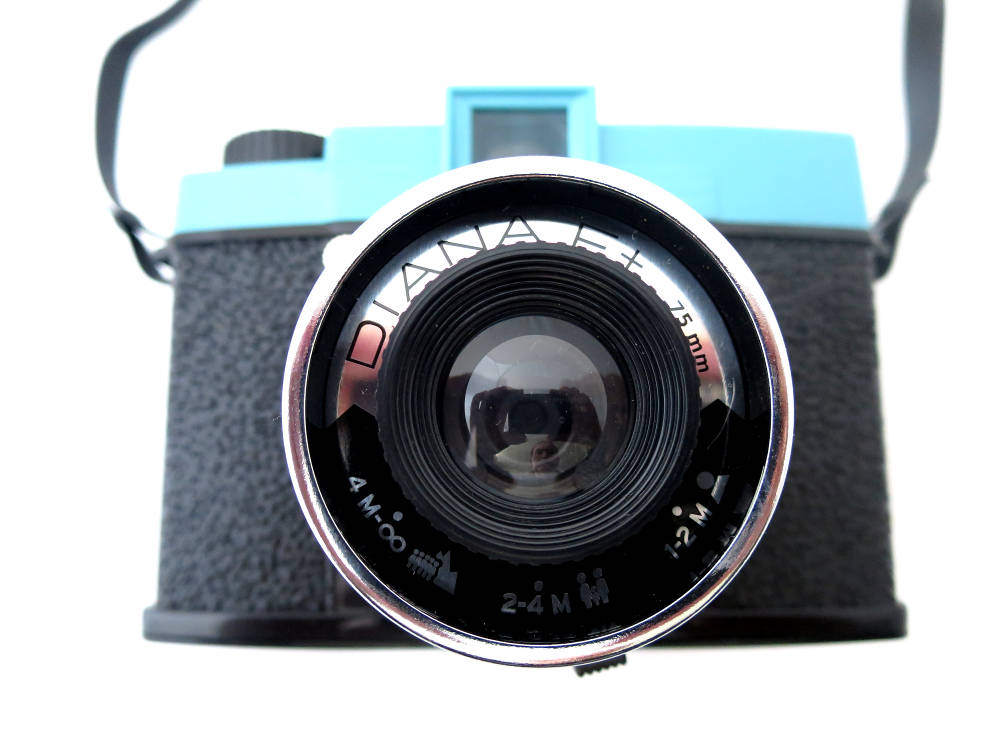
Camera
front. Viewer window. Zone focus scale around the lens.
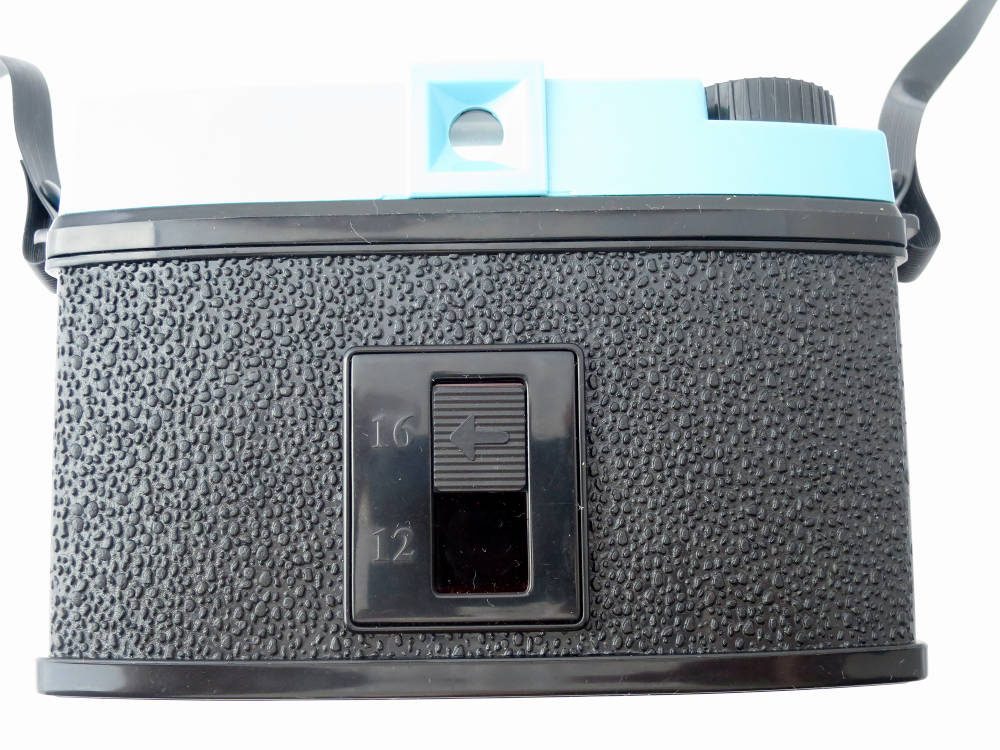
Camera
back. Finder. Red window with 2 settings.
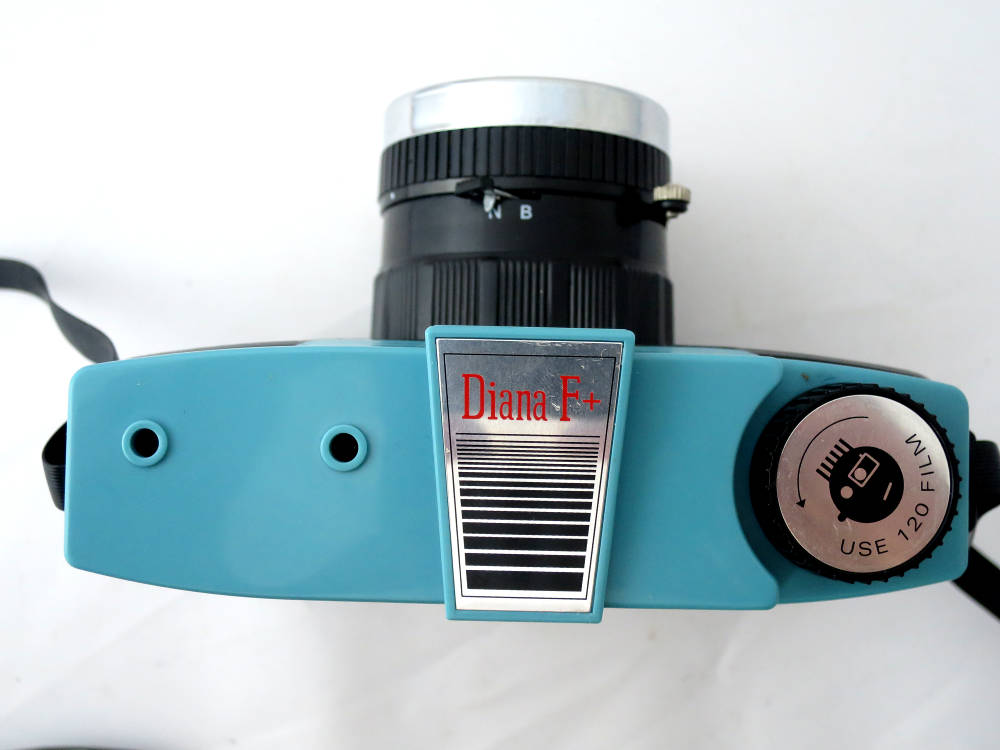
Camera top. Flash socket, film advance knob. On the lens: speed setting
and shutter lever.
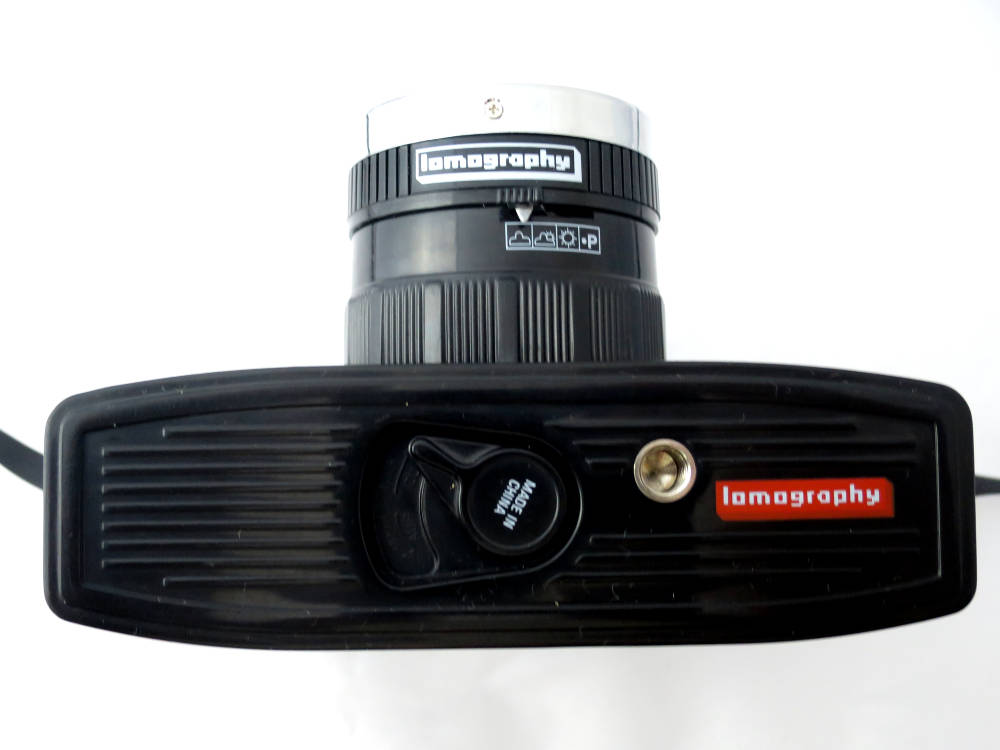
Camera bottom. Tripod socket and back cover release. On the lens:
diaphragm setting.
I made a test for all the lenses on Fuji Instax Mini film (see lens
page). This is what you get with the 75mm standard lens:
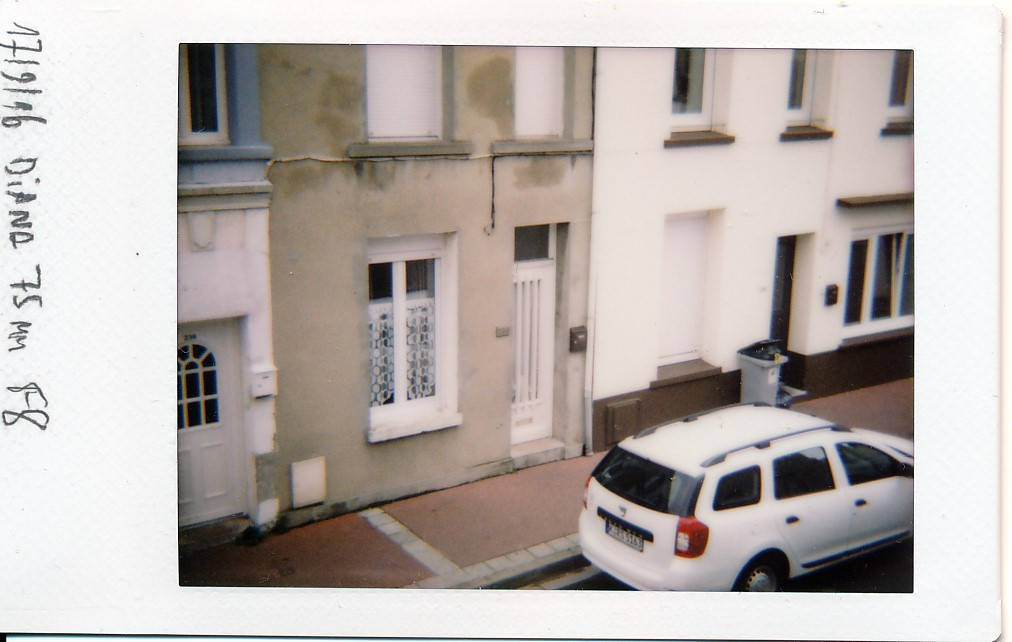
75mm standard,
F8, 1/60s, good sharpness.
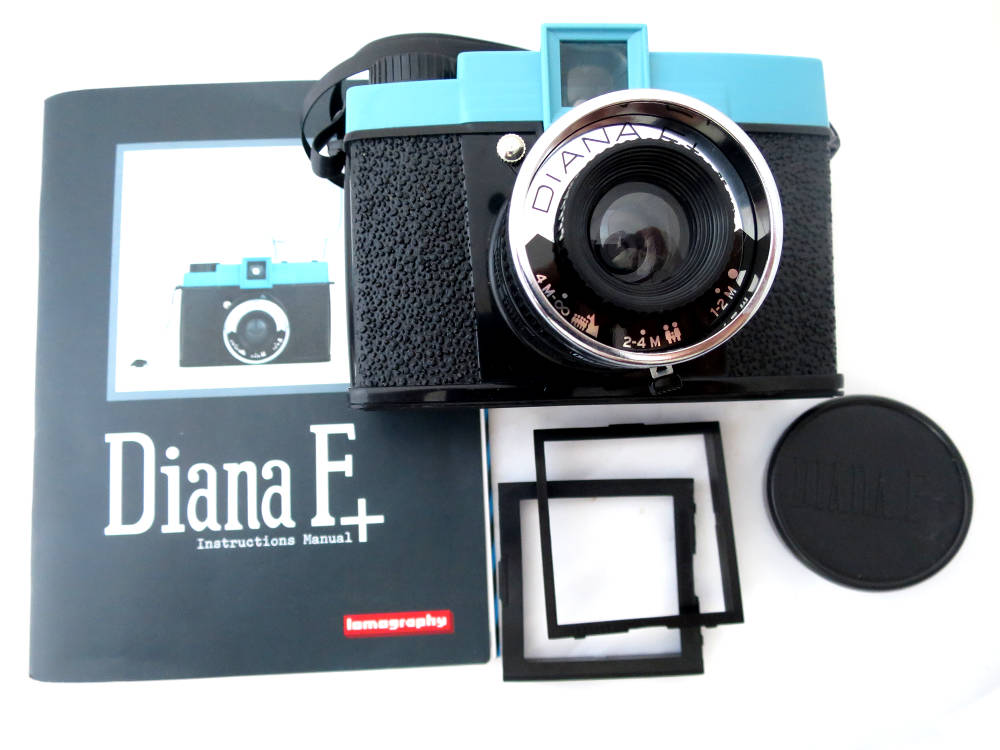
The basic set. Instructions, 2 frame masks, lens cover and camera with
basic plastic strap.
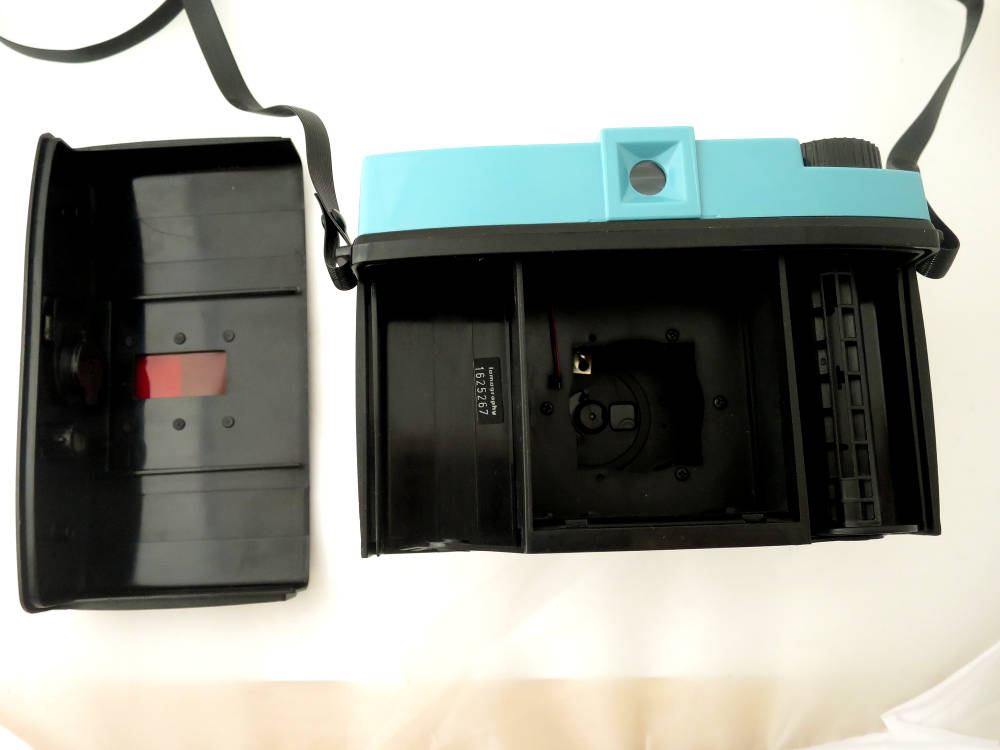
Back open. No frame mask installed.
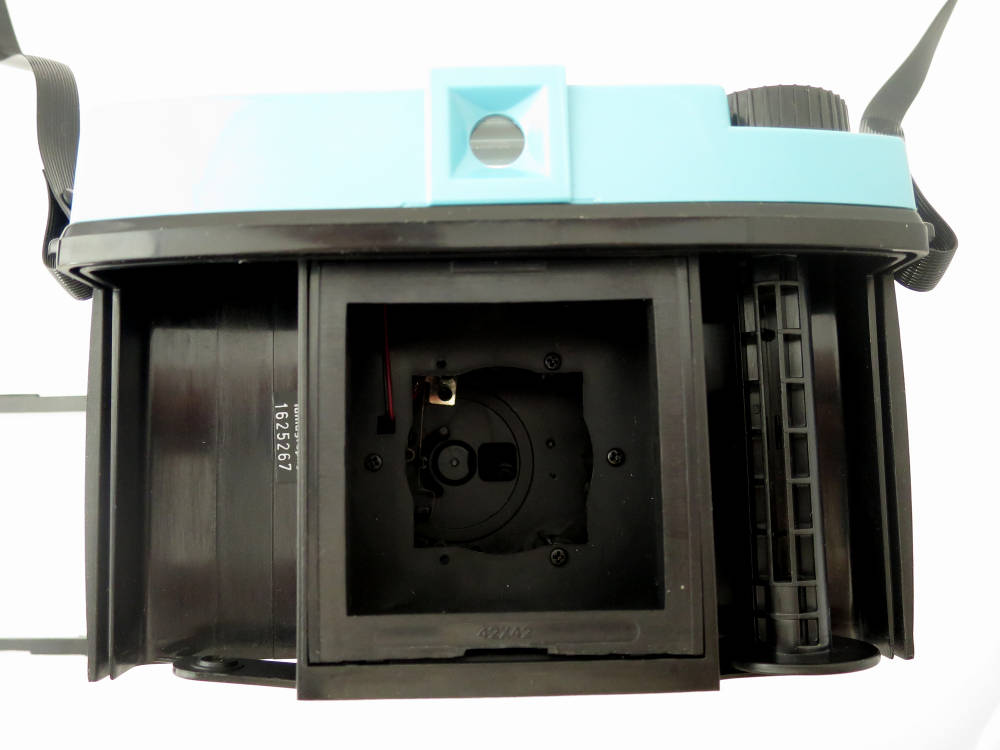
Film compartment. 42mm frame mask installed. The pegs are not hinged, only bendable plastic, so handle with caution.
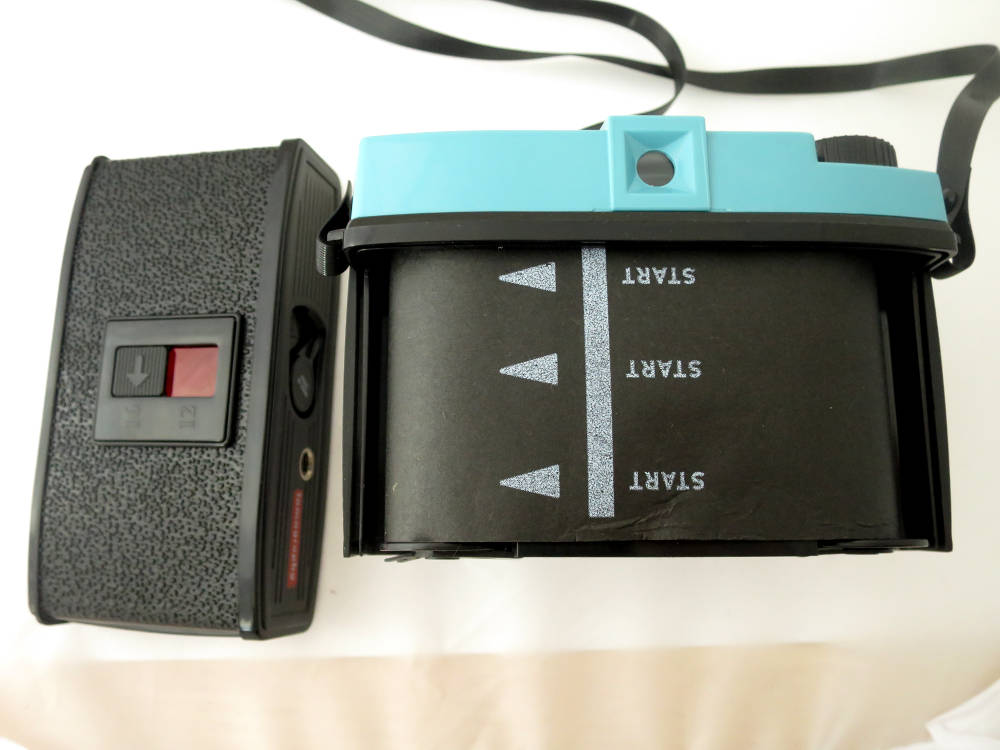
Roll film ready.
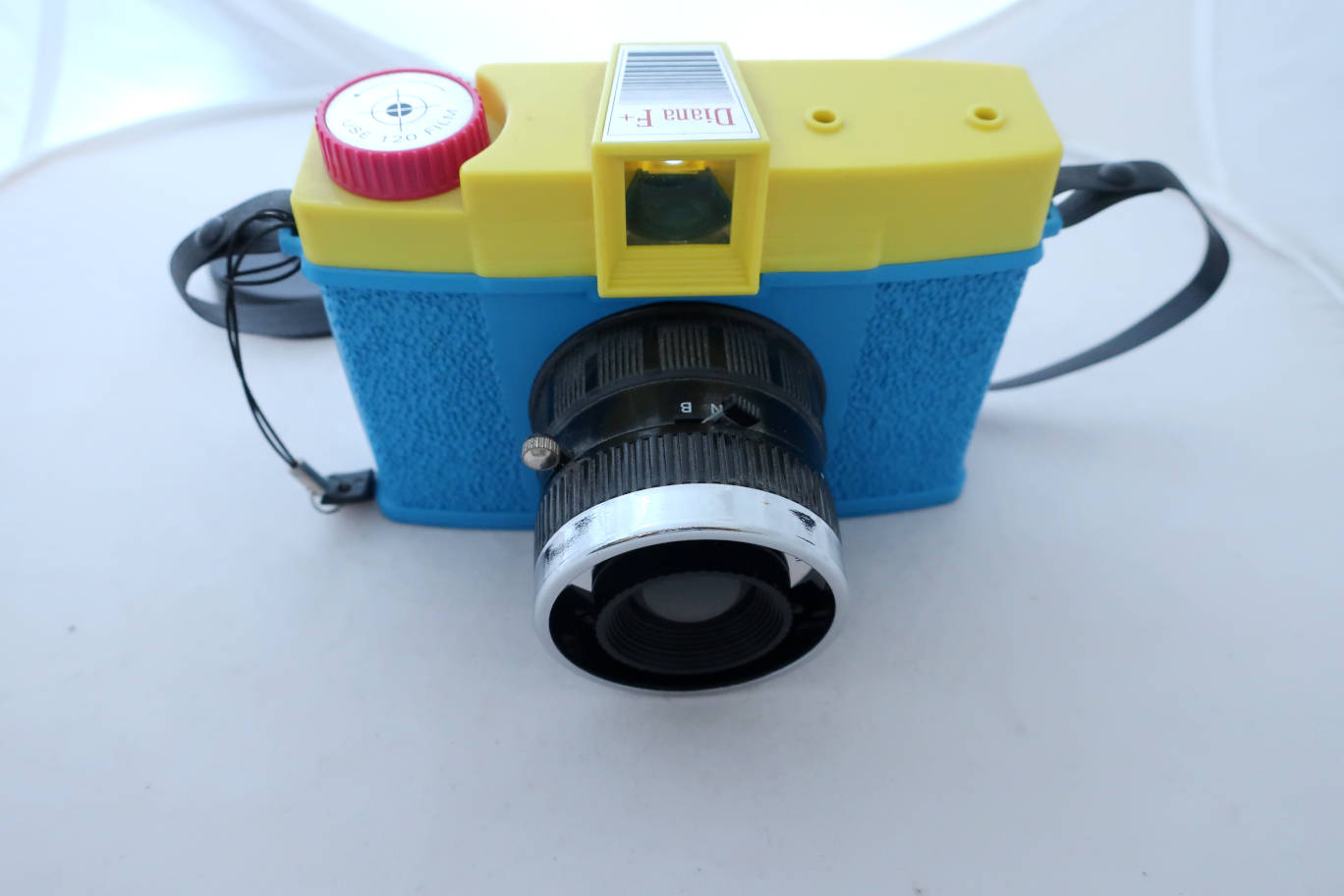
The Dianas were made in multiple colours. I have completely black one, a
golden one and a very colourful one shown here, called CMYK.
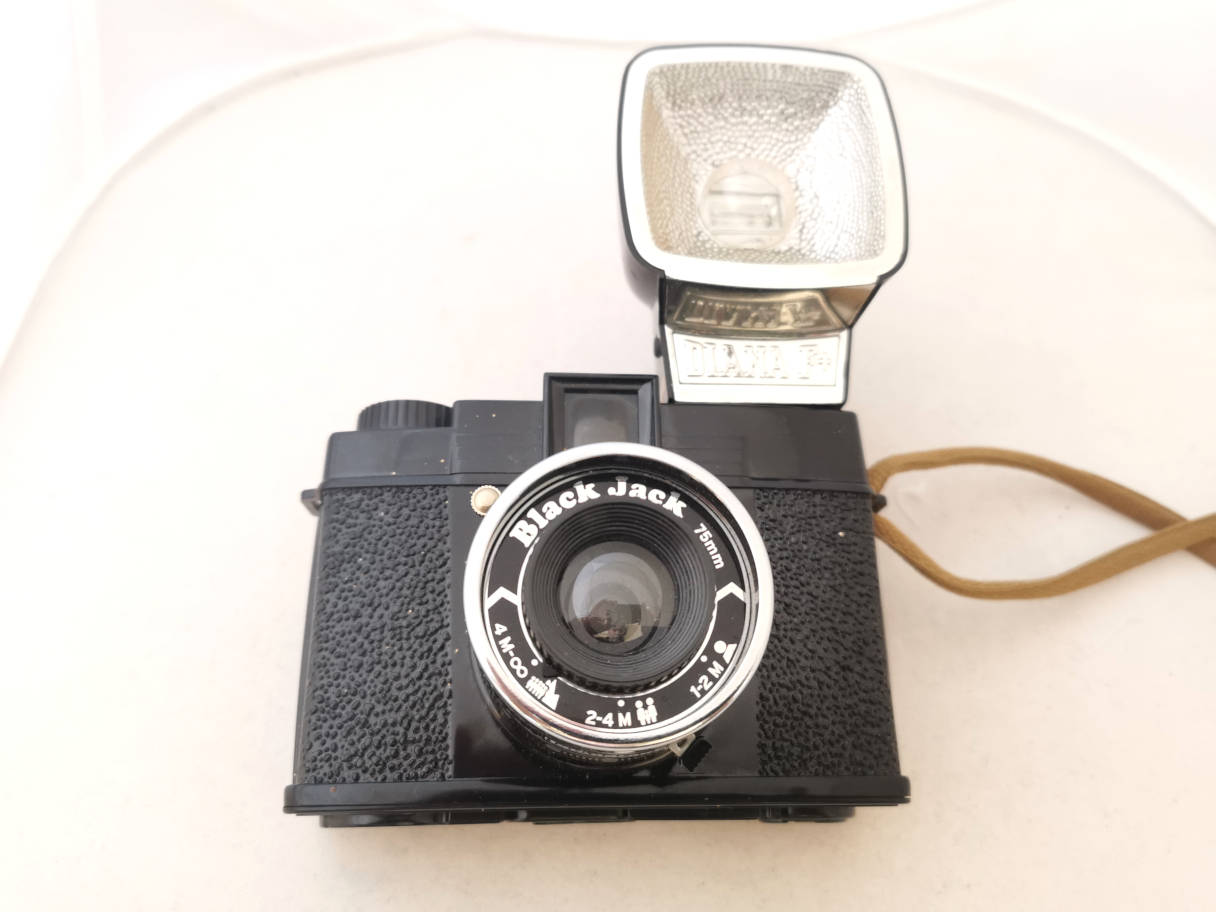
An all-black Diana, called Black Jack. Even the flash is black.
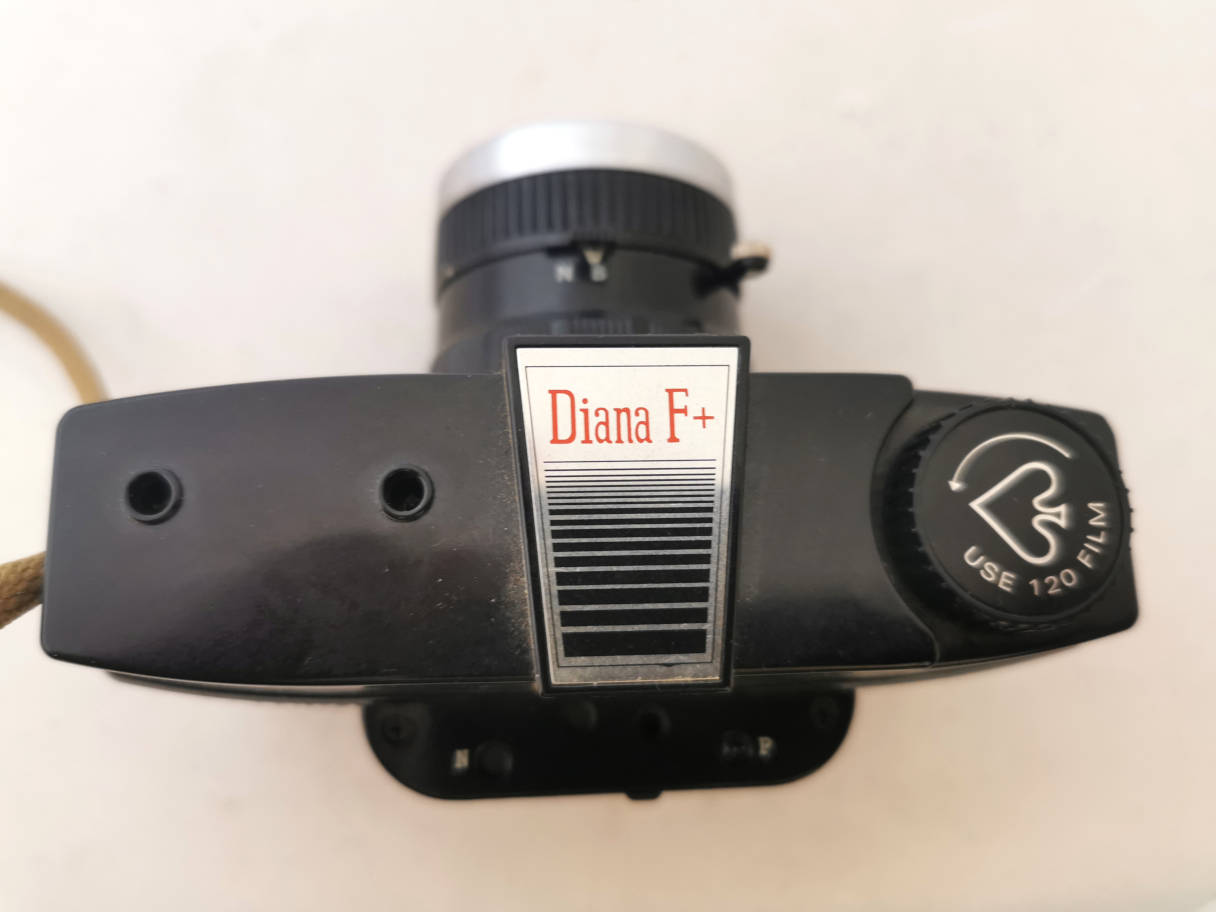
Reference to the Black Jack card game on the wind knob.
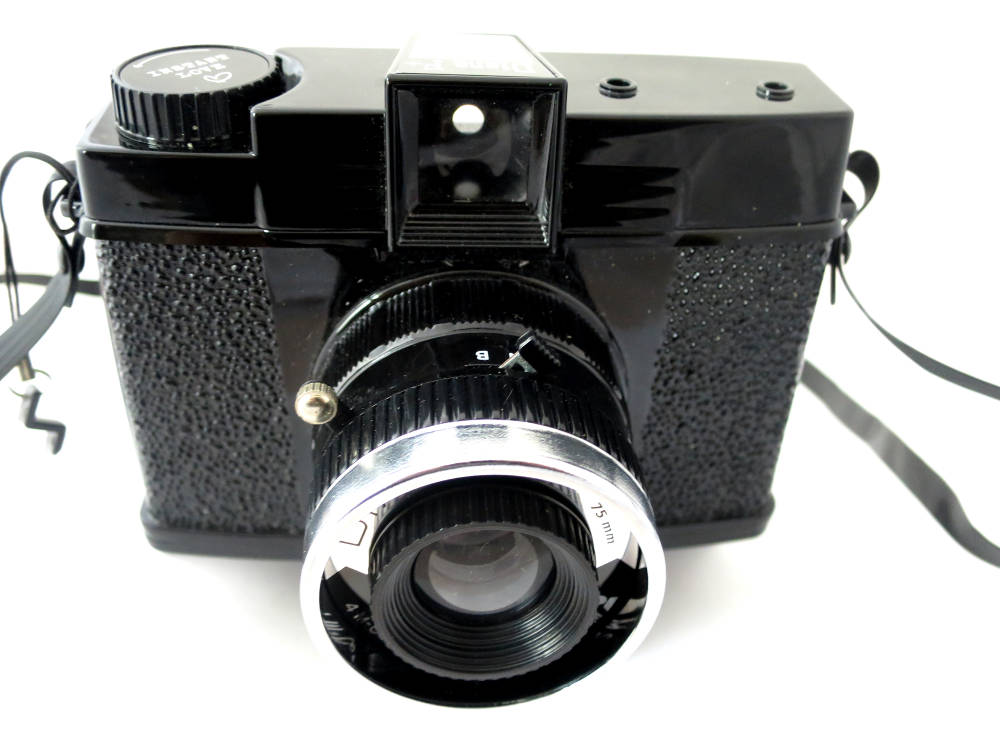
There was a black Diana without special name before.
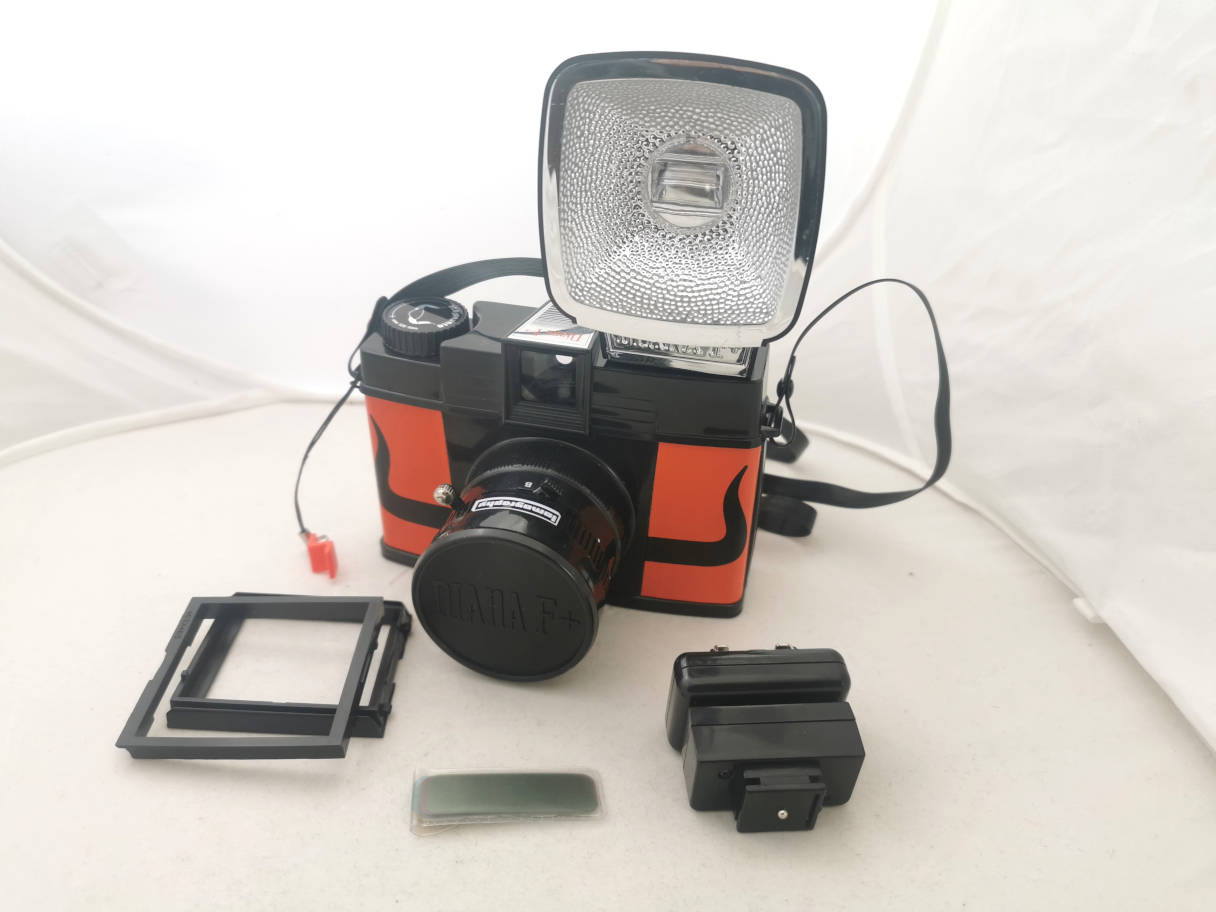
An edition called El Torro.
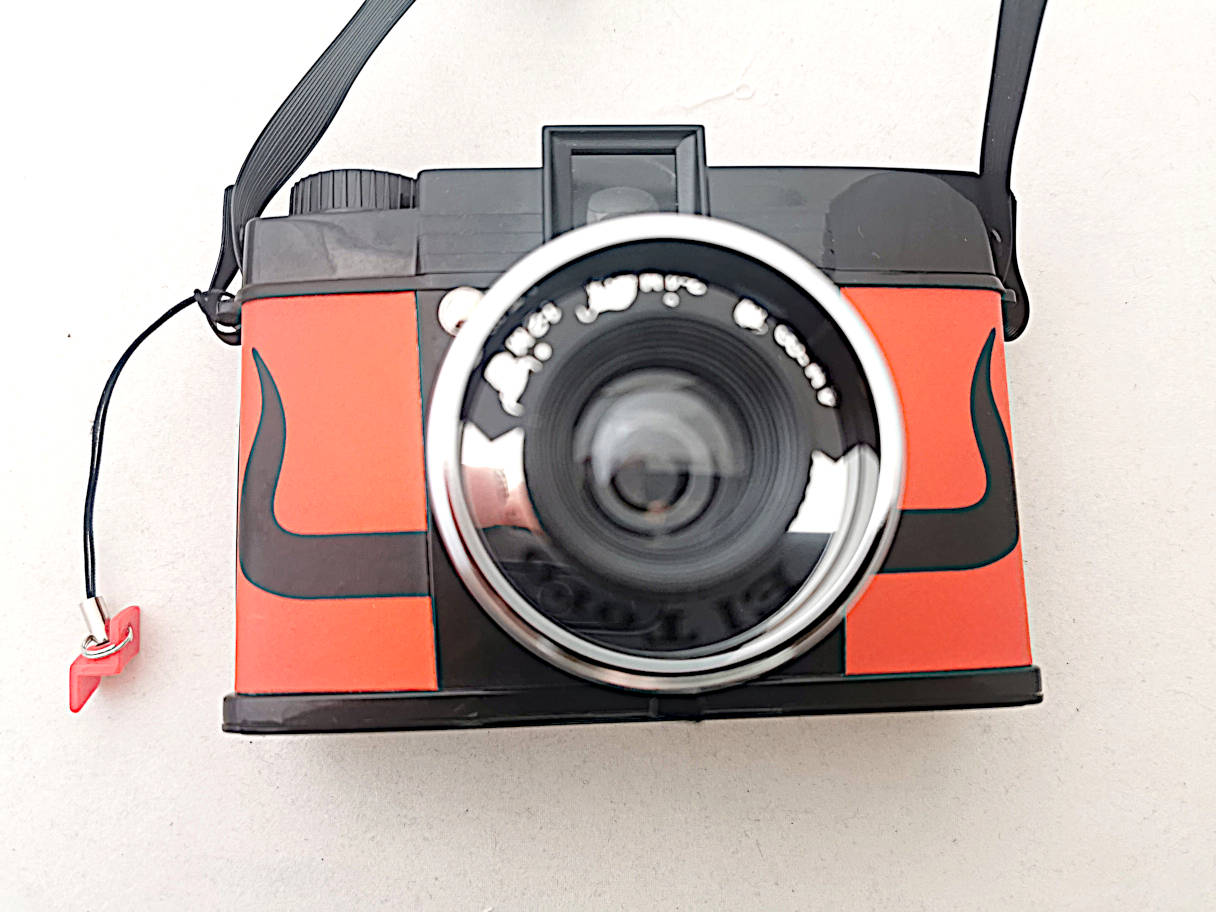
Front
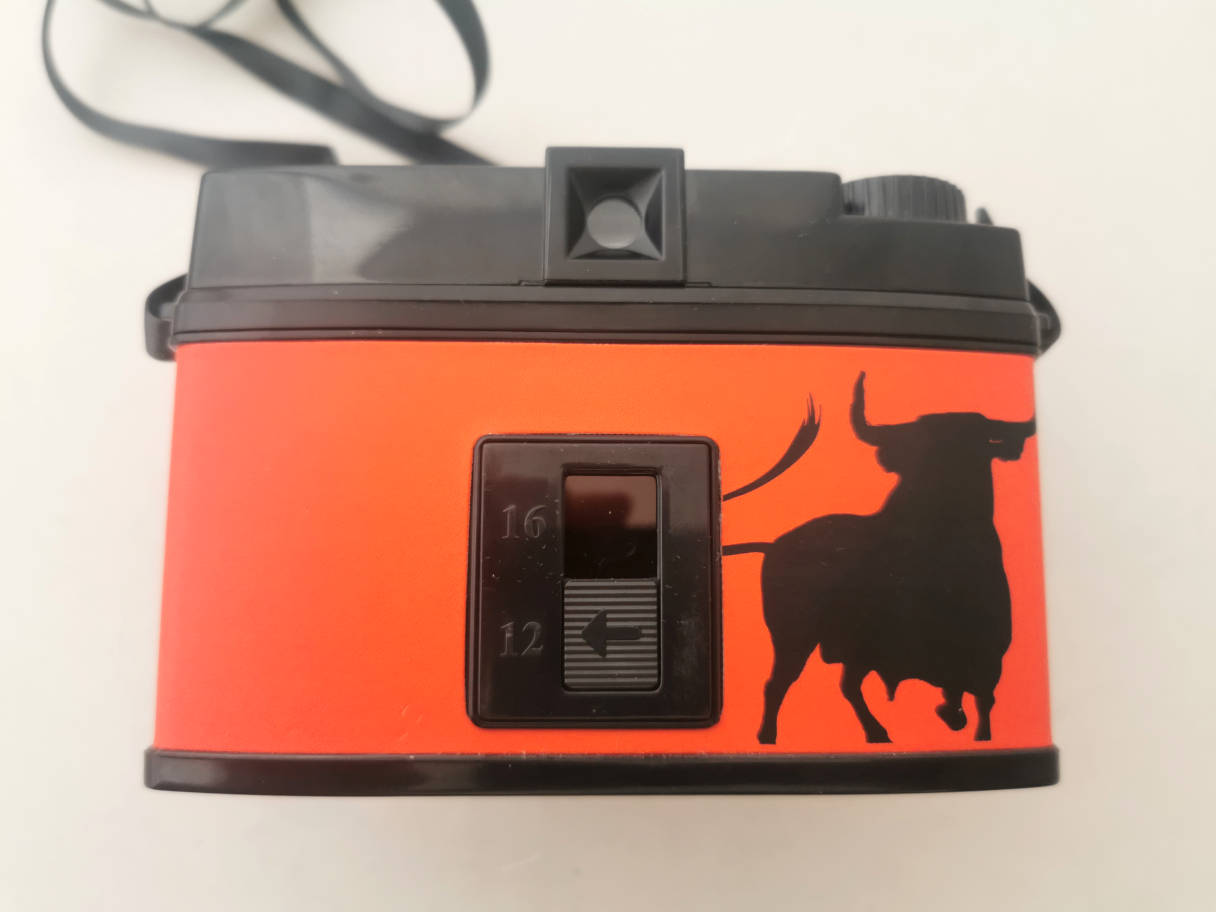
Back view.
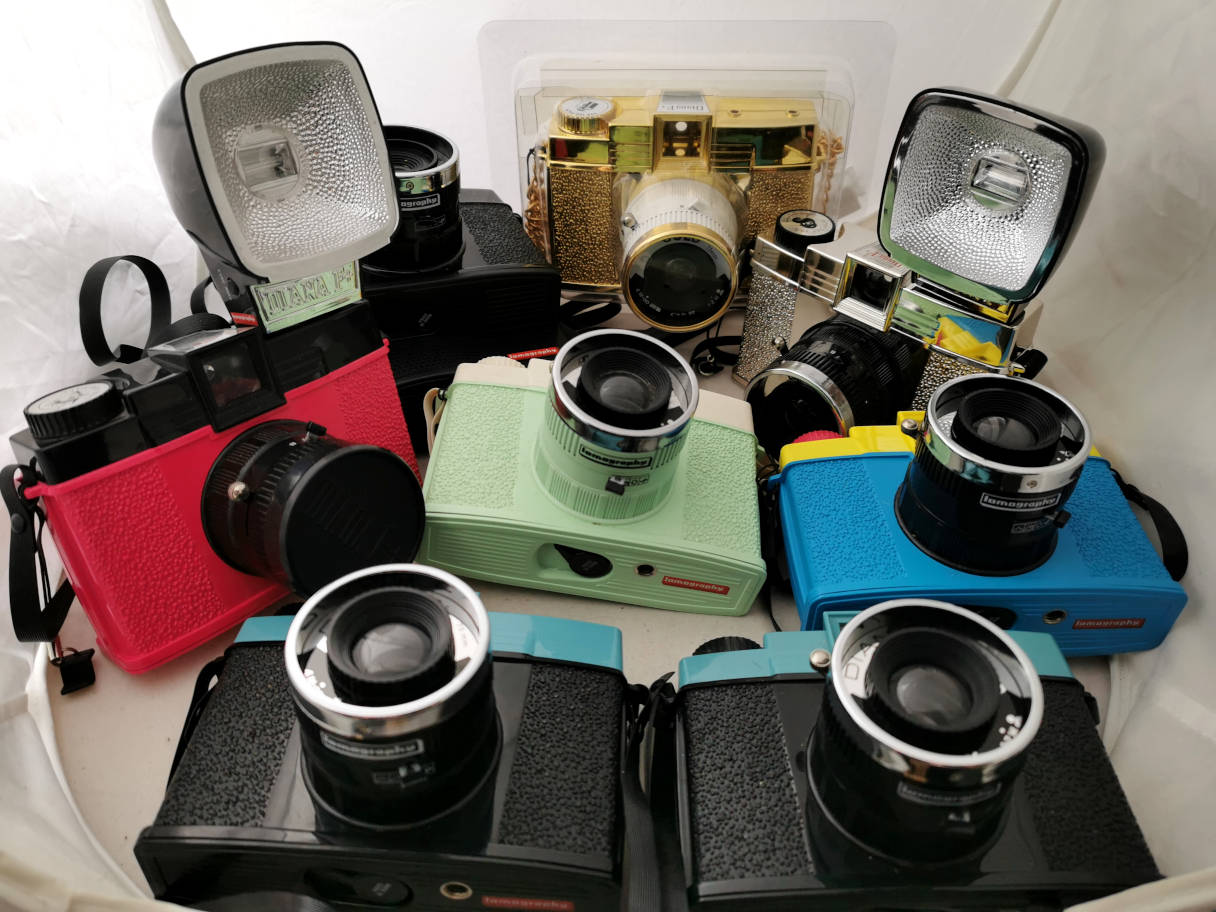
Some of my Dianas together.
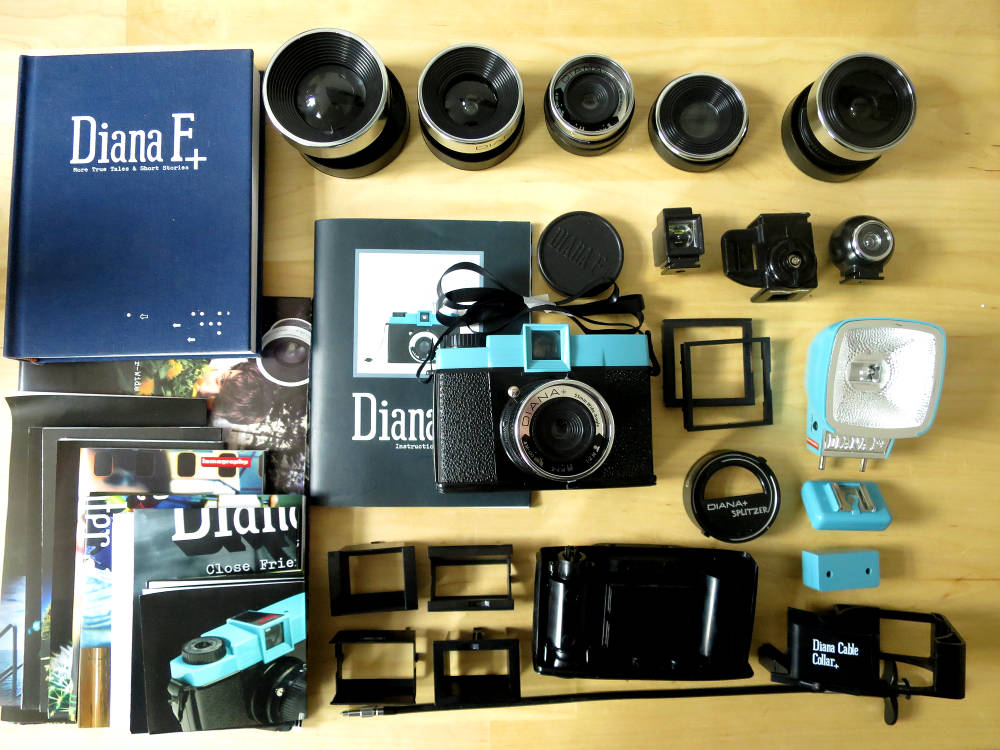
This
is a whole set of a camera with all the lenses and most of the
accessories, the Diana Deluxe Kit. As a set it's much cheaper than a
purchase step by step. It was packaged in a BIG box that I did not
keep. I found mine quite cheap on an advert page.
As
there are quite some lenses and some accessories, this page would have
become to long. So the lens
page is here and the accessory
page is here.
The Diana F+ isn't a reasonable camera. It is a basic plastic camera
with only one speed, no automatic exposure, no automatic film advance,
no autofocus, not even a rangefinder, cheaply made plastic lenses that
produce heavy vignetting and random results. But...
...in the
age of digital cameras and cell phones with quite good cameras
Lomography took the risk to launch film cameras again and to get people
back to the fun of trying out the basics of photography, even to the
point of a certain hype. I would not discuss the prices, it's a small
market nevertheless and everything had to be started from scratch
again. They created a whole system of easy to use lenses and
accessories. There is a second hand market which is worth a try if you
are patient.
Some
gereral words about Lomography and their service: There is a 2-year
warranty, at least in Europe. My personal experience with their service
is very good. As most of their cameras are made of (cheap) plastic,
there is no repair, they just exchange your defective camera. You have
to send it in to their Vienna office at your expenses, which is not cheap
if you are not based in Austria, but they try to compensate by adding
film or so to the return. You absolutely need a proof of purchase,
there was heavy abuse by fraudulent customers they told me. So if you
buy second hand or your camera is gift, be sure to put your hands on
the proof of purchase. After the 2-years warranty period it's over.
They will try to help for the expensive not-so-plastic cameras like the
LC series, but for the rest there is no repair. Keep this in mind for
the prices you pay for older gear.
There are thousands of discussions across the forums worldwide about the
Diana. Read some of them if you are interested. I
love playing
wth the multiple possibilities of the system. For me it's fun. I don't
think about measuring, I guess and I try. So for me the Diana is a nice find.






